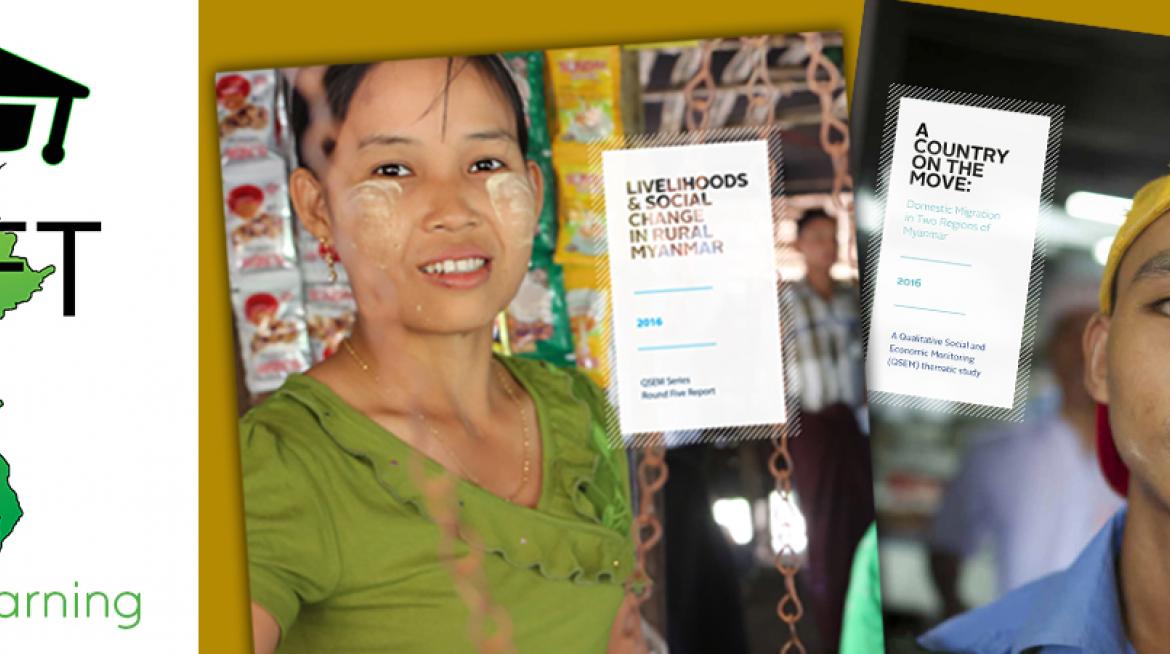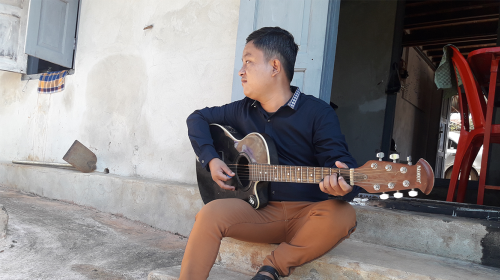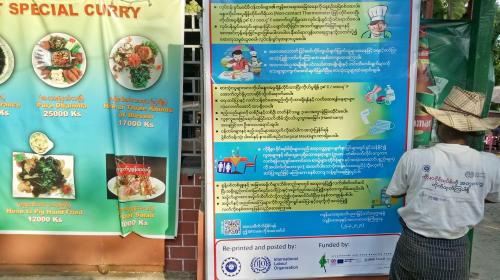
This week, LIFT and the World Bank launched the fifth report in the Livelihoods and Social Change: QSEM Series, along with the thematic study, A Country On The Move: Domestic Migration In Two Regions Of Myanmar.
Livelihoods and Social Change: QSEM Series Round Five Report
The Round 5 report continues its examination of rural village life in Myanmar in a panel study of rural villages across three states and three regions (Chin, Rakhine, Ayeyarwady, Magway, Mandalay, and Shan). Three villages are sampled within each township (selected are those with highest poverty rates) that are (i) close to township centres, (ii) representing average access to roads/markets/water, and (iii) distinctly remote. Research for QSEM5 was conducted from Dec 2014 to Feb 2015.
Key findings included:
- Improvements in agriculture-based livelihoods are noted in Shan, Chin, and Ayeyarwady, while other states/regions are still more prone to weather-related shocks. Farmers are notably diversifying production in Shan, benefitting from access to the Chinese market, especially into corn. More land is being brought under production. Farmers are moving from shifting cultivation to permanent cultivation. Productivity is on the rise, especially noted for rice in the Delta. More farmers are growing two seasons of rice than reported in earlier QSEM rounds. Also, diversification continues into non-farm rural livelihoods.
- Increased access to rural credit was observed, relative to earlier QSEMs. They detect increased penetration by the Myanmar Agricultural Development Bank (MADB), increased size of loans, lower interest rates from MADB, and a more diversified set of credit sources as more NGOs penetrate rural areas.
- Land registrations have spread as land ownership is asserted, again a surprising trend across QSEMs. People perceive this change positively as a way to assert their rights over land. In a small number of villages land registration has not proceeded. Increased registration has not yet led to changes in how land is used, improvements in land rights dispute resolution, nor in increased land prices.
- Villagers perceive an increase in delivery of government services, e.g., school construction, access to credit (per above), and local infrastructure. Expectations about continued increased service delivery exceed actual delivery increases. Despite this, no instances of village development plans were noted.
- Greater authority of village trade administrators is observed.
- Migration has noticeably increased, with increased demand for labour in Yangon and increased need for rural households to diversify their income sources.
Find the full version of the QSEM 5 report in English and in Myanmar here and the executive summary in English and in Myanmar here.
A Country On The Move: Domestic Migration in Two Regions Of Myanmar, A QSEM thematic study
This study was commissioned as a result of earlier QSEM reports that indicated significant growth in internal migration. In many countries in the region, domestic migration has played a significant role to reduce of poverty and build resillent livelihoods. However, migration also contains significant risks for poor migrant households and sending communities.
Using a mixed methods approach, the study used quantitative methods to identify profiles and patterns of migrants and migration, and qualitative research investigated migration strategies, enabling factors and impacts on those left behind.
Key findings included:
- Earning differentials between sending and destination locations are not substantial and as such the certainty and regularity of urban jobs is a significant migration motivation
- Social networks were found to have a pre-eminent role in influencing decisions about migration especially risk management
- Households exercise a high degree of caution in exploring migration opportunities
- Financial costs associated with domestic migration for most groups are low, and therefore manageable for individuals or through financial support from families.
Find the full version of the A Country On The Move report in English here and the executive summary in English and Myanmar
For further information, please contact Andrea Woodhouse and Matthew Zurstrassen at the World Bank in Myanmar: +95 1 654824 ext.302





